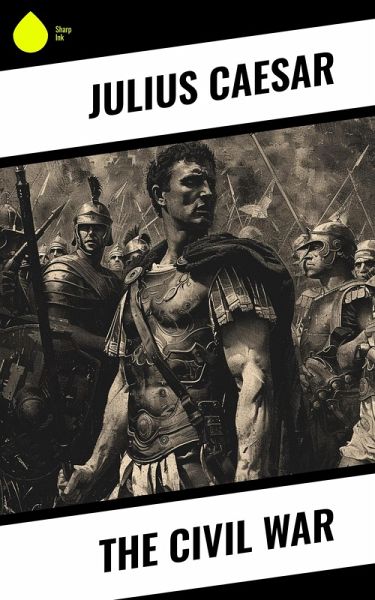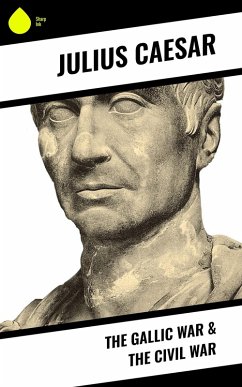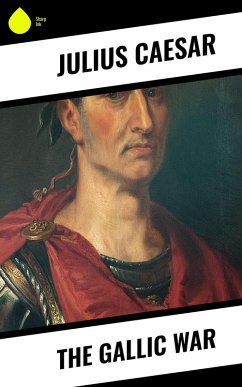
The Civil War (eBook, ePUB)

PAYBACK Punkte
1 °P sammeln!
In "The Civil War," Julius Caesar meticulously chronicles the monumental conflict between his forces and those of Pompey, weaving a narrative that is both personal and political. Composed in a clear, direct style that marries rhetoric with strategic insight, this firsthand account not only details the battles and strategies employed but also delves into the philosophical implications of power and loyalty in Roman society. The historical context of the late Roman Republic looms large within these pages, as Caesar navigates the complexities of his role in a turbulent political landscape, showcas...
In "The Civil War," Julius Caesar meticulously chronicles the monumental conflict between his forces and those of Pompey, weaving a narrative that is both personal and political. Composed in a clear, direct style that marries rhetoric with strategic insight, this firsthand account not only details the battles and strategies employed but also delves into the philosophical implications of power and loyalty in Roman society. The historical context of the late Roman Republic looms large within these pages, as Caesar navigates the complexities of his role in a turbulent political landscape, showcasing his prowess as both a military leader and a writer. Julius Caesar, renowned for his military genius and political acumen, authored this work during a pivotal period of his life. His firsthand experience in the conflicts against Pompey's faction profoundly influenced his writing. With a keen understanding of the dynamics of political power and the often personal nature of warfare, Caesar provides readers with not only a historical account but also a reflection on his motivations, ambitions, and the implications of his actions for Rome. "The Civil War" is an essential read for those interested in ancient history, political strategy, and the nature of conflict. Caesar's eloquent prose and keen observations invite readers to consider the broader themes of authority and civil discord, providing timeless insights that resonate beyond the confines of his era.
Dieser Download kann aus rechtlichen Gründen nur mit Rechnungsadresse in A, B, BG, CY, CZ, D, DK, EW, FIN, F, GR, HR, H, IRL, I, LT, L, LR, M, NL, PL, P, R, S, SLO, SK ausgeliefert werden.













